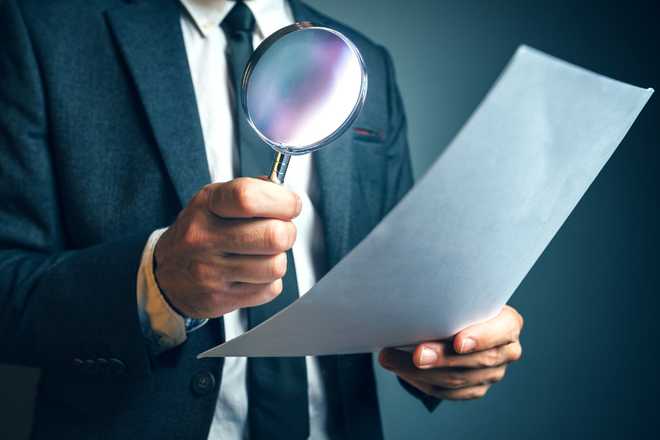Ridamjeet Kaur
Questioned document examination is a branch of forensic science that deals with the study of handwriting and signature comparison, examination of forged and charred documents such as property papers, business papers, Wills, contract papers, currency notes, stamp papers, photocopies, printouts, railway tickets, bus tickets, fake passes etc.
Work profile
Forensic Document Examiner (FDE) simply defines document as a sheet of paper or anything that bears information or recorded thought in the form of text, symbol, pictures, marks etc.
A document becomes a questioned document when its authenticity is challenged. The authenticity of a document can be challenged on various accounts such authorship of document, forgeries of signatures, ink paper, printing, typewriting, chronology of ink on document, age of the document etc..
Role and responsibilities
A questioned document examiner analyses and establishes the authenticity of document in dispute. His works involve comparison of handwriting or signatures, identification of signs of forgery in signatures, identification of additions, deletions, alterations in document as well as photocopies, deciphering of content below obliterated and indented writings impressions (writings present on pages below original writing papers), comparison of inks and papers, determination of age of documents, comparison of printed documents and revealing of hidden messages written by secret inks and handling and deciphering content from charred documents.
The FDE’s are often called to the court to testify as experts in criminal cases involving documents.
Forensic document examiners are skilled forensics scientists with a demonstrated expertise in applied questioned document examination, which can stand up in a court of law, uses scientific processes and methods to establish the contents or origin of a document, or discover a relationship between two or more documents.
FDE plays a vital role in finding truth behind the documents by applying common sense techniques along with other scientific procedures.
Where you can work
After perusing a degree in forensic science, a student can immediately start his career as private practitioner in questioned examination in courts or with private detective agencies. The most popular professional career in this field are:
- Scientists, Scientific officers, Deputy Directors or Directors (Questioned documents) in Central and State Forensic Science Laboratories.
- Assistant GEQD's, Deputy GEQD's and GEQD's in Offices of Government Examiners of Questioned Documents (Three GEQD offices all over India in Hyderabad, Kolkata and Shimla).
- Lecturers/professors in universities or academic institutions,
- Consultant in various private firms i.e. banks, insurance companies or any financial related businesses.
- JRF/SRF/RA/SRA in various prestigious institutes such as CSIR, CFSL, SFSL (different states), Medical colleges and hospitals.
The questioned document examination division of forensic science is one of the fastest growing disciples under forensic science arena and has a good job scope.
— The writer is Assistant Professor, Chandigarh University, Gharuan.
Unlock Exclusive Insights with The Tribune Premium
Take your experience further with Premium access.
Thought-provoking Opinions, Expert Analysis, In-depth Insights and other Member Only Benefits
Already a Member? Sign In Now










